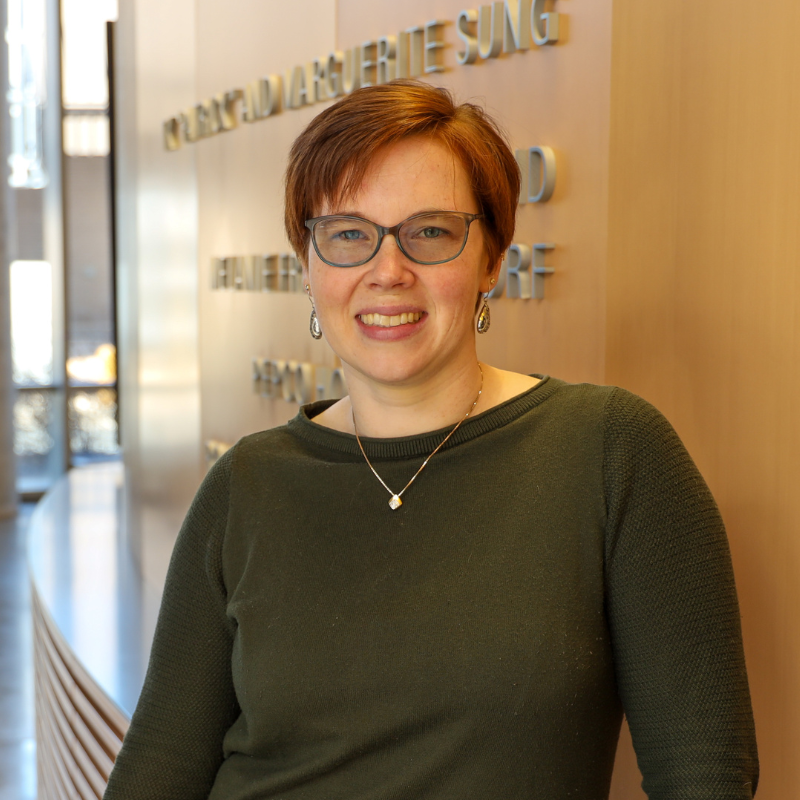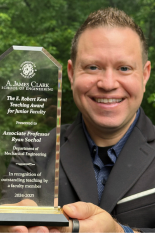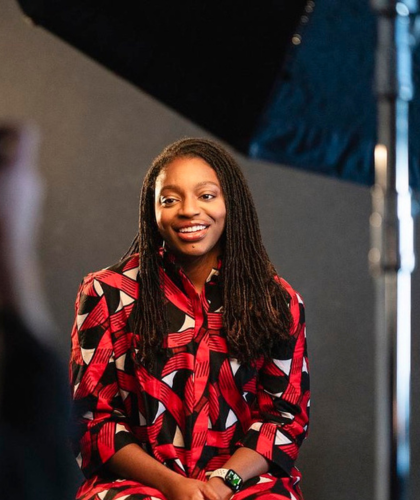News Story
BIOE Announces Fall 2024 Instructional Impact Awards
The Fischell Department of Bioengineering (BIOE) announced the three recipients of the Instructional Impact Awards for the Fall 2024 semester. Senior Lecturer Deborah Goldberg, 4th-year Ph.D. student Allison Moses, and senior undergraduate researcher Elizabeth Everich were selected as recipients of this semester’s department Impact Awards. These student-nominated awards honor one faculty member, one graduate teaching assistant (GTA), and one undergraduate teaching fellow (UTF) each semester for their dedication and contributions to student success.
Faculty Instructional Impact Award
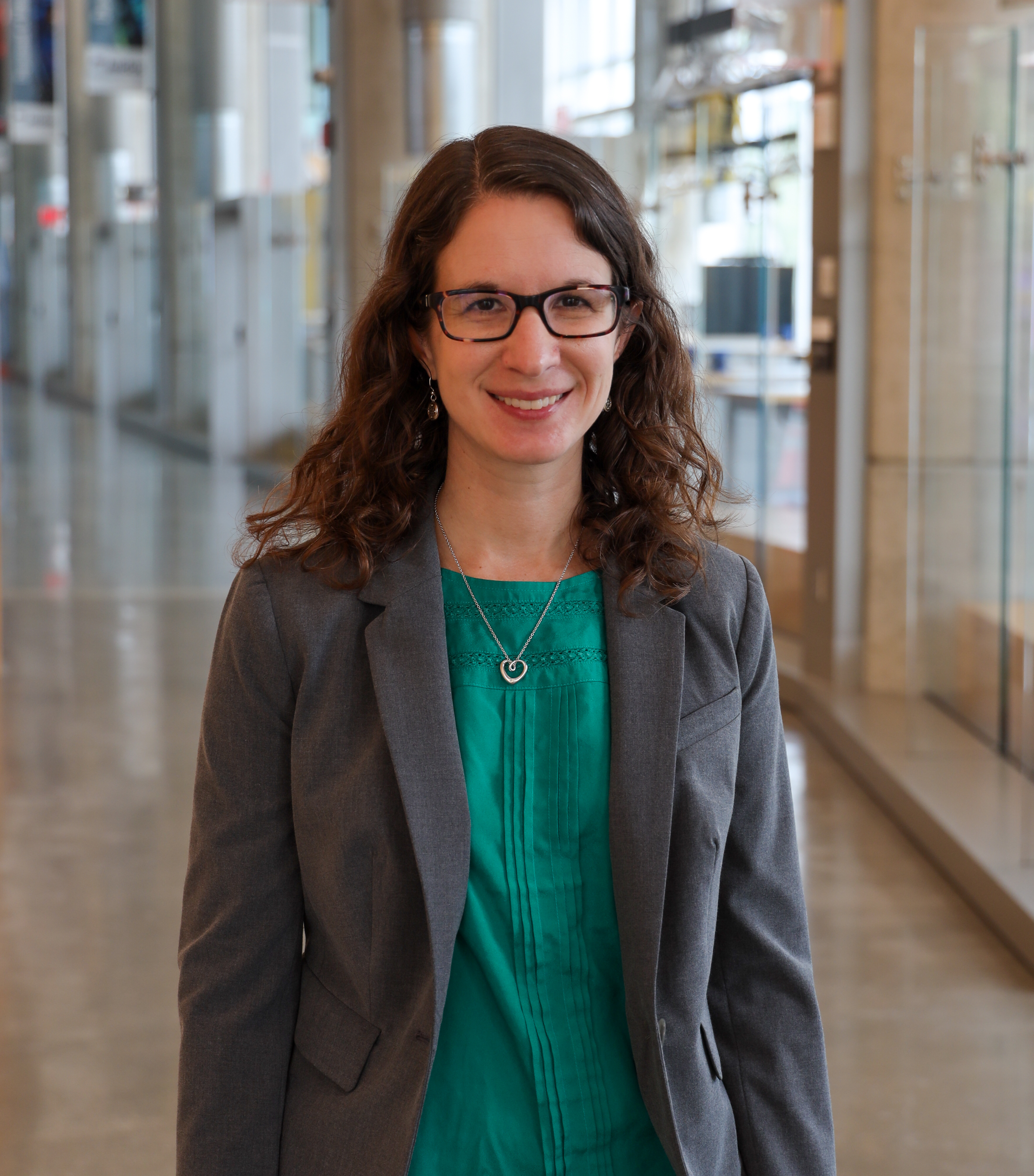
Deborah Goldberg
Senior Lecturer
Senior Lecturer Deborah Goldberg received the Faculty Instructional Impact Award for the second time after joining BIOE in Fall 2023. She was nominated for her innovative teaching approaches in BIOE331: Biofluids and BIOE474: Biopharmaceutical Process Development & Manufacturing. Goldberg’s teaching focuses on helping students develop problem-solving skills that extend beyond the classroom, preparing them for success in their future careers.
“I am honored to be selected for the BIOE Instructional Impact Award for the second time. BIOE331 is an incredibly challenging course, and it's very rewarding to see that my teaching style helps to make this class more accessible and enjoyable for students,” says Goldberg.
Goldberg aims to teach students how to break down complex problems, make informed assumptions, and develop models to find solutions. She explained that these problem-solving skills are critical for any career pathway and continue to benefit students long after graduation.
One student nomination noted that“Dr.Goldberg’s teaching style was very inspiring and effective. Each minute in class was engaging and I felt her lectures to be very organized, gone through a lot of preparation, and efficiently simplified complex topics with videos, analogies, and practice problems.”
Goldberg fosters a collaborative learning environment by offering ample resources such as recorded lectures, homework solution walkthrough videos, and extra example problems. She also hosts learning-community-style office hours in the Leidos innovation space in Clark Hall, providing a welcoming space for students to seek help and collaborate with peers.
“I always tell students at the beginning of the semester that we are ‘on the same team.’ My goal is for them to be successful, and I design my courses to give them ample resources to master the content,” says Goldberg.
GTA Instructional Impact Award
Allison Moses
2nd-Year Ph.D. Student
Allison Moses, a second-year bioengineering Ph.D. student in Erika Moore's lab, received the Graduate Instructional Impact Award for her contributions in BIOE453: Biomaterials. In the lab, she designs biomaterial models to investigate uterine fibroids, supported by an MPower Graduate Fellowship for a collaborative project with the University of Maryland, Baltimore. Since graduating with her B.S. in Spring 2023, Moses has used her experiences to enhance student learning in the classroom.
“I feel honored and grateful to be selected for this award. It’s really rewarding to know that my efforts have made a positive impact on the students’ learning experience!” says Moses .
Moses emphasizes real-world applications in her teaching, designing assignments, reflections, and exams that encourage students to connect course concepts to their future careers. She enjoys helping students think critically and apply their knowledge in meaningful ways.
“One of my favorite parts about being a TA is designing assignments that encourage students to think more deeply about course concepts and their relevance to their career goals,” Moses says.
One student nomination noted how “Allison went above and beyond the traditional expectations of a TA, demonstrating exceptional dedication, creativity, and engagement with students. Her innovative approach to leading exam reviews, including using tools like Kahoot and interactive games, not only made learning enjoyable but also ensured students felt confident and well-prepared.”
Drawing from her experience as a UMD undergraduate, Moses works to make complex ideas accessible by breaking them into simpler concepts. She also organizes graduate student panels to provide students with insights into academic and professional opportunities beyond the classroom.
“I strive to help students see the bigger picture of how what they’re learning applies to their goals. It’s incredibly rewarding to watch them make those meaningful connections,” Moses says.
UTF Instructional Impact Award
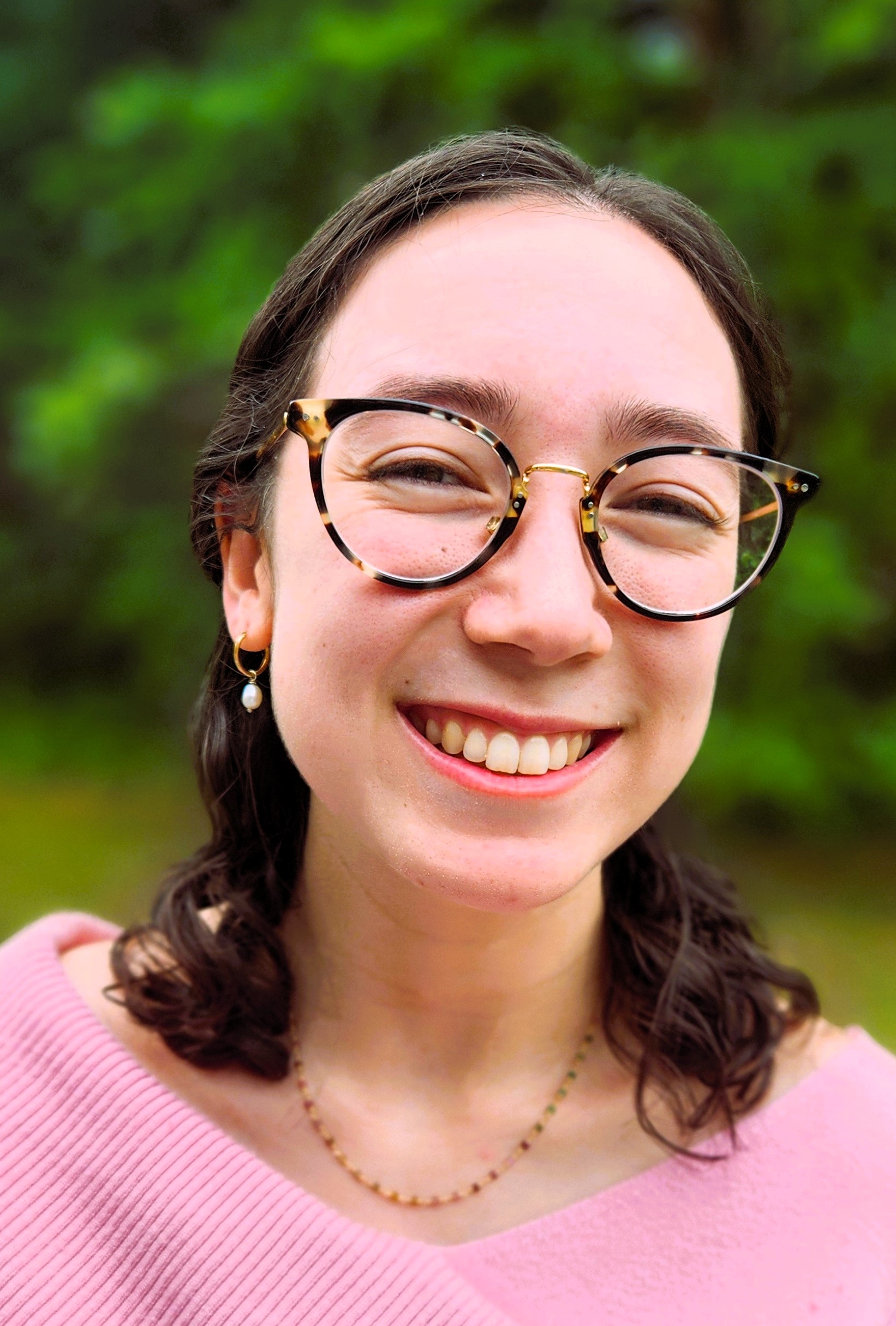
Elizabeth Everich
Senior Undergraduate
Elizabeth Everich, a senior undergraduate researcher in the Zierden Lab and a participant in the Biotechnology and Therapeutics Engineering (BITE) track, was selected for the Undergraduate Instructional Impact Award. After graduation, Everich plans to continue in the B.S./M.S. program. She is recognized for her commitment to fostering a collaborative and supportive learning environment for her peers.
“I am truly honored to receive this award. It brings me great joy to know that I was able to give back to the community that has supported me,” Everich says.
“Elizabeth Everich has been an exceptional TA for BIOE371, a course I am teaching this
semester. I have seen how committed she is to supporting student success. She has an
exceptional skill for explaining challenging concepts in a clear and relatable way, making the
material more accessible and improving student’s understanding.” a BIOE instructor said.
Everich prioritizes fostering an inclusive and collaborative environment where students feel comfortable asking questions and working together. She makes an effort to connect with students both academically and personally, tailoring her approach to their individual habits and preferences.
“I strive to create an environment where students feel comfortable engaging and learning. During discussions, I circulate around the room to check in with each group and pair of students who are interested in working together,” Everich says.
Everich enjoys watching her students grow throughout the semester. She particularly enjoys seeing their problem-solving skills develop and the excitement of their 'eureka' moments. Beyond mastering course material, she values helping students discover effective study techniques and build the confidence to tackle challenging problems.
Published January 23, 2025


